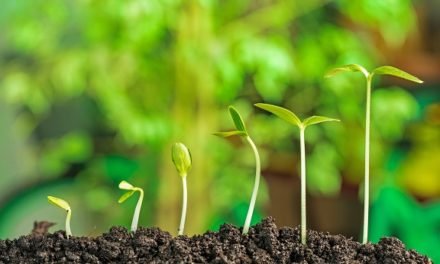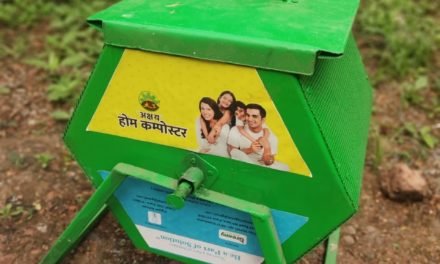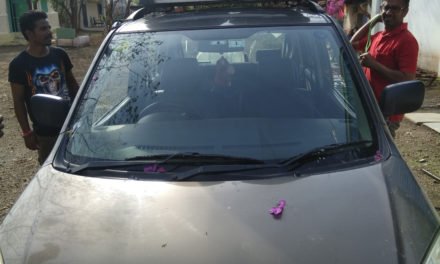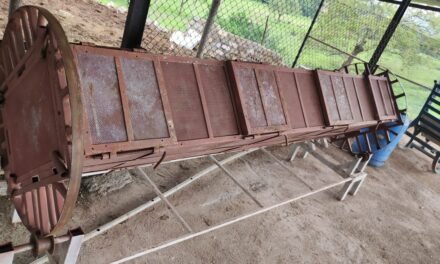Introduction:

Compost from societies
Around 60% to 70% wet waste produced daily in cities like Bangalore and Mumbai is wet waste or organic, biodegradable waste.
It is extremely illogical for this waste to be dumped into landfills if it can be treated at home or in the backyard. Not only does it reduce the pressure on landfills, but also proves to be profitable to societies and individuals.
Composting helps to dispose off wet waste in a productive way, creating sustainable gardens, and also provides the opportunity for societies to generate extra income by the sale of compost fertilizer. It enriches the soil quality, helping it retain moisture and reduces the waste volume handed over to the government, which is already struggling pitiably to process India’s phenomenal waste generation (1.50 lakh metric tons daily).
When the organic waste is decomposed, treated and recycled to create nutrient-rich soil fertilizer and conditioner, it’s called composting.
Tax benefits on compost wet waste produced by Housing society:
Housing societies that produce over 100 kg of waste and have an area of 20,000 sq meters are required not only to segregate dry and wet waste but also do on-site disposal. In cities like Mumbai, the government is offering a 3% property tax rebate to housing societies that compost wet waste and up to 7% rebate if a society gives zero garbage to BMC. Such heavy incentivization could become the norm across the country if citizens actively participate in waste management self-starter initiatives. Other than that, there’s always a little profit to be made by selling organic compost in farmers markets or even online. Eventually, the OWC would pay for itself.
From October 2, the Pimpri-Chinchwad Municipal Corporation (PCMC) will not lift wet waste from as many as 700 residential societies that generate more than 100 kg waste. Instead, the civic body has asked the societies to segregate wet and dry waste and convert wet waste into compost within their premises.
PCMC Deputy Municipal Commissioner (health) Ajay Charthankar told The India Express, “We will not lift wet garbage from big housing societies that generate more than 100 kg waste per day, irrespective of the number of flats in the society.
There are over 5,000 residential housing societies in PCMC’s jurisdiction. Of these, around 700 have been classified as ‘bigger’ residential societies which generate more than 100 kg garbage every day. “Of these 700 societies, a little over 200 have set up their waste processing units. The rest are yet to take action despite being told several times,” he said, adding, “We have been sending notices to these housing societies since 2017. Notices were sent in 2018, 2019 and even in the last two years.”
He said in 2016, it was made mandatory under the Solid Waste Management Rules, 2016 for housing societies to segregate dry and wet waste and process them at their end. “After the rules came into force, the builders started providing space inside housing societies to convert wet waste into compost. However, despite the space, several housing societies failed to set up their own wet waste processing units,” he said.
Charthankar further said that societies set up before 2016 can either make space for setting up wet waste processing plants or can handover their wet waste to private parties. “These private parties charge some fees for converting the wet waste into compost. There is no capping on their fee. In turn, the societies can either use the compost for their gardens or can sell it off.
The Ministry of Urban Development had set an ambitious target of October 2019 for converting all organic waste generated in cities into compost or biogas, and marketing the compost with the help of fertilizer companies. The project has, however, run into hurdles with only about 1.6% of the total waste being composted.
composting will not only reduce the volume of waste to landfill/ dumpsite by converting the waste into useful by-products but also prevent production of harmful greenhouse gases [especially methane] and toxic material that pollutes groundwater apart from polluting the environment
However, observing that “farmers are not very curious to purchase compost, as by paying rs 50 to rs 60 extra farmers can purchase a bag of urea which has an immediate impact on the soil”, the committee said there was a need to use compost since it is “considered as a soil conditioner and its impact on the soil would only be visible after continuous use for two to three years.
The BMC sells the organic compost at rs 20 per kg.
3 to 6 tons
The six countries above have the highest recycling and composting rates in the world. Germany takes the cake, recycling and composting 65% of waste. South Korea is second best, ethically getting rid of 59% of its waste. Coming in close behind are Austria and Slovenia, which tie for third place at rates of 58%.
India exports most of it’s Compost manure to Maldives, Nepal and Kuwait. The top 1 exporters of Compost manure are India
● Compost fertilizer use after the whole composting process is completed many societies they have problem of selling the compost fertilizer as the farmers prefer urea or other organic fertilizers.
Objectives:-
- To study the average amount of waste produced in a society per flat per person.
- To study the average amount of wet waste produced in a hotel with respect to occupancy.
- Introduce the society composter to stakeholder.
- To study how people dispose of their household waste.
- To study how hotels dispose of their kitchen waste.
- To study the awareness of government initiatives & regulation as well as green house effect with respect to biodegradable solid waste management.
Background/Need of project:–
- A biodegradable solid waste is estimated to be 40 – 42 million metric tons for year 2020/21.
- Due to Urbanization this volume are on steep increase. This could be converted to compost to enrich soil and cut down carbon foot prints. This improper waste management in turns results in air & water pollution. Contaminated water poses threat to human health.
- Due to disease spread methane production and fire incidences like Deonar damp ground fire leads to panic situations.
Methodology:-
- We want to introduce our society composter to as many societies & hotels in pune city & pimpri chinchwad area.
- We can go to the society & interact with watchman of the society and get information about how much waste management is done about the society.
- By talking to the president of the society, we will find out that he is facing some difficulties regarding the installation of society composter.
- We can go to the solid waste department and under standard the rules of the big society ragarding waste management there.
- In the areas of pimpri Chinchwad the people have become aware of the need for society compost.. Due to the fact that a large society have recieved the notice that their waste should be composted in their own permises. Hence, people there are looking for different ways of waste management. We can go there and let them know about society composter.
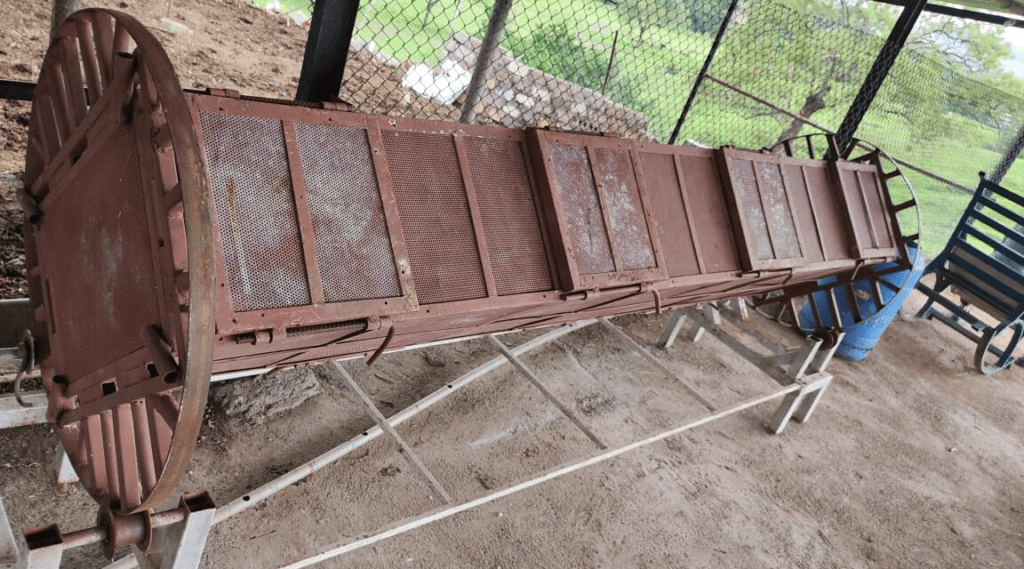
Data collection in Pune & Pimpri Chinchwad area.
@varad-gadkari helped me to do the survey of the Society Composter in Pune & Pimpri Chinchwad.
On 12th SEP 2022:
An enquiry in Vigyan Ashram From Hotel Orchard Shivaji Nagar, Pune for Society Composter. Then we discussed with Dixit sir and we go to the Hotel Orchard (Shivaji Nagar Pune) And discussed our Plan about Society Composter with their maintenance person.
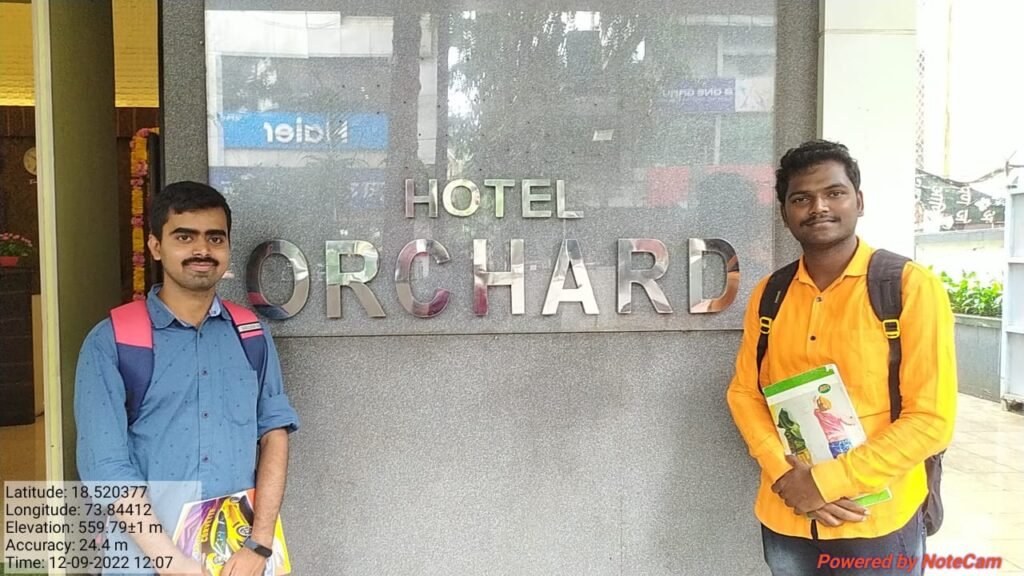
Orchard hotel has 30 rooms, this hotel provides food and accommodation to the customers. He said that a few days ago the received a notice from the municipal corporation that you should compost your wet waste here. So they wanted to compost their waste so they asked us for a Quotation.
We told them about the essentials required for the society composter:-
- The space required to keep the society composter & Space required to run the system.
- One worker who can spare half an hour daily to operate this system.
- Told them about the materials needed to compost waste, such as culture and sawdust.
- Composted manure is something you can use on your plants, if you still have leftover composted manure, you can sell it to us.
We observe that:-
- When the notice about waste management comes from the government office, the local people start thinking about composting the waste.
- He understood our plan well and asked us about our system where have you demonstrated the system before.
- They give their garbage to the municipal vehicle, but they don’t easily tell them how much have to pay for it.
- In places where there are very few trees, what to do with the remaining manure is a big question before hotels.
During this three days, we conducted a survey of society composter in Shivaji Nagar, Chikhali & Pimpri Chinchwad areas.
Survey of Composter in Hotels :-
29/09/2022:
On this day we conducted a survey of society composter in Shivaji Nagar Apte road Hotels.
On the first day we went to the hotels at Shivajinagar Apte Road and asked how the wet waste was managed there. They told us that their wet and dry waste is taken by the workers working in the Swachh Bharat Abhiyan and then dumped in the municipal vehicles. All these hoteliers pay the people working in Swachh Bharat Abhiyan to carry their garbage, and they put the garbage in a place when the Municipal Corporation vehicle comes. We asked the hotel guys that ”how much do you pay them to take the garbage”, at that time they did not give us any reply, they said that we don’t have to pay anything for the garbage.
After that we went and met the workers working in Swachh Bharat Abhiyan and asked them how much they charge hoteliers for garbage collection, they told us that they get seven hundred rupees per month from each hotel to carry garbage from Hotels.

Then on our way we saw a vehicle working in ”Adar Poonawalla clean city initiative” collecting garbage from there, we observed for a while that the car was only carrying wet waste from shops, then we asked the driver of that car about the disposal of this waste. How to proceed. So they told me that they collect wet and dry waste separately and then separate it in Shivajinagar and once again only wet waste is sent as suji to a village about 20 kms from there, where that wet waste is used experimentally to make bio CNG.
We inquired in all the hotels asking if the notice came from the Municipal Corporation and some hotels said yes and some hotels said no so we visited the Pune Municipal Corporation Management department to check it, later we found that no notice has been sent from them till now.
The society told them that the hotels had received a notice for waste composting, they said that the notice had not come from us, but they had received a notice from the department of particular health there, they told us. We then inquired about the same and came to see that the particular health department had given notice to them from that place.
The list of the hotels we visited on that day for the survey of society composter and the information about them is available in excel sheet below.
Composter Survey in Societies :-
30/09/2022 & 01/10/2022
On this day we conducted a survey of society composter in Chikhali, Newale wasti, More wasti, Pimple saudagar, Vishrantwadi areas societies.
In these two Days we went to 20 societies and conducted a survey.
03/11/2022 & 04/11/2022
On this day we conducted a survey of society composter in Moshi, Chikhali, Newale wasti, Sonawane wasti, Gharkul, Pimple saudagar areas societies.
In these two days we went to 34 societies and conducted a survey.
The list of the hotels we visited on that day for the survey of society composter and the information about them is available in excel sheet below.
The list of the Societies we visited on that day for the survey of society composter and the information about them is available in excel sheet below.
16/11/2022 to 18/11/2022
After discussion with Dixit sir and Ranjit sir from that discussion it was decided that proposal of society composter should be sent on behalf of nisrgayan kheti solutions PVT LTD.
This time we made a proposal and took its prints and gave them to each society & Hotel.
The proposal we have made for society composter is given below.
We gave this proposal in 120 societies & 15 Hotels are located in Shivajinagar. We went to the society of Moshi, Chikhali, More wasti, Newale wasti, Sonawane wasti, vishrantwadi, Tingare Nagar to give a proposal.
Result of Survey:
The result of Society and hotel composter was great and I listed some key points that I observed and I think they are main reasons for less use of society composter in Pune.
1) People care about composting only when the Municipal Corporation makes it compulsory otherwise no one cares about this waste. They don’t care what Corporation does with there waste or how much damage it causes to the environment.
2) Some societies have made pits to compost there waste but I think that they are only for show because proper care of there system is not done I have seen that in many pits there were plastic thrown , these pits also sink, they were overflowing.
3) Many societies also given money to garbage collecters so that they could collect wet waste from the society and throw it somewhere else.
4) People or societies are given ₹70 /month to garbage collecters and hotels are giving maximum ₹700/ month.
5) Some society are having problems of space to set up a system. And some have problem in selling the compost outside.
6) Some people don’t care about waste and give very less response when it comes to manual system and time taken by the system to convert wet waste into compost naturally.
7) Some societies wanted us to be third party and collect wet waste from there society and treat it at Vigyan Ashram.
Conclusion:-
1) We got to learn many things from the survey and got to know people’s and government approach to waste.
2) We found out how much wet waste is collected from each society per flat per person and also found hotel waste collection for each day.
3) We made people aware about Vigyan Ashram’s composting system. ( Rack and Crate system both)
4) We found out the problems of people regarding composting.


